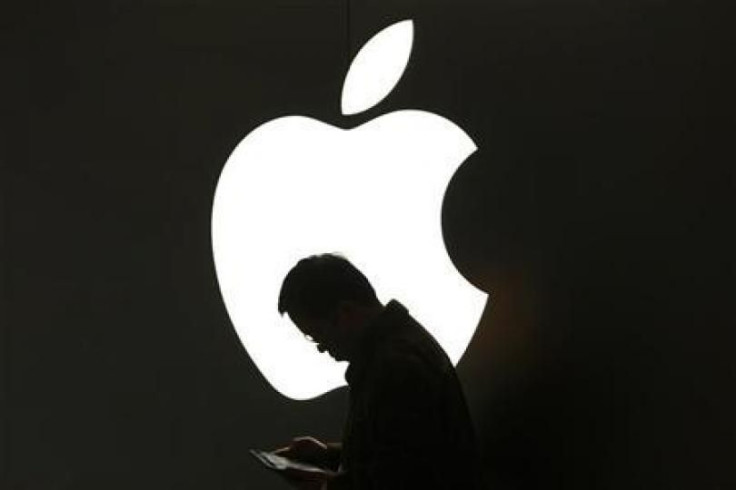Apple US Plant Locations: Foxconn Will Reportedly Build Factory In Wisconsin

As a company, Apple is best known for products like the iPhone and MacBook lineup, but could it bring manufacturing jobs for these products back from China? Long-time Apple supplier Foxconn is expected to announce plans Wednesday to build a factory in Wisconsin, CNBC reports.
According to CNBC, the plant could potentially be located around southeast Wisconsin and it could potentially focus on building display panels for devices like home televisions. The move is also a significant update on Foxconn’s previous plans to move into the U.S. Chinese parts giant Foxconn said earlier this month it wants to make a $10 billion investment within the U.S. and was looking into launching a factory in the Midwest.
“Our investment in the U.S. will focus on these states because they are the heart of the country’s manufacturing sector,” Foxconn chairman Terry Gou said. “We are bringing the entire industrial chain back to the traditional manufacturing region of the U.S.”
However, Apple’s exact involvement in the factory — if any — remains unclear. In an interview with the Wall Street Journal Tuesday, President Donald Trump said Apple CEO Tim Cook had promised to build three production plants in the U.S.
“I spoke to [Tim Cook], he’s promised me three big plants — big, big, big,” Trump said, according to the Journal. “I said you know, Tim, unless you start building your plants in this country, I won’t consider my administration an economic success. He called me, and he said they are going forward.”
Read: Latest Apple Update Fixes Major Wi-Fi Security Vulnerability
For Apple’s part, the company declined to comment on Trump’s statement.
In the past, Apple had traditionally been hesitant to bring much of its China-based manufacturing back to the U.S. During a 2015 interview with 60 Minutes, Cook pinned much of the blame for why Apple moved its manufacturing overseas to a lack of skilled American workers.
“You can take every tool and die maker in the United States and probably put them in a room that we’re currently sitting in,” Cook said. “In China, you would have to have multiple football fields.”
But recently, Apple has been more willing to look into significant U.S. investment. Earlier this year, Apple announced plans to launch a $1 billion fund that will invest in developing advanced U.S.-based manufacturing jobs. In 2013, Apple also launched a small factory in Austin, Texas that focused on building its high-end Mac Pro desktops.
Among its Chinese partners, Apple also reportedly asked them to consider moving some manufacturing to the U.S. earlier this year. While responses have been mixed among Apple’s various Chinese contractors, who help produce components like screens and chips within Apple devices, Foxconn has been a high-profile supporter for the move.
On paper, the moves could come with some clear hurdles for Apple. If the company moved production of the iPhone to the U.S., analysts have predicted that it could cause the manufacturing costs of the smartphone to potentially double.
But for Apple, some of the reasoning behind these moves is likely political. During the U.S. presidential election last year, Trump made investments in U.S. manufacturing a frequent talking point while on the campaign trail. Especially with topics like outsourcing, companies like Apple were occasional targets for Trump. Previously, Trump has threatened to place hefty trade tariffs on Chinese-made goods. During a talk in January at Liberty University, Trump also called for Apple to move some jobs back to the U.S.
Read: Apple Funding Legal Defense Of Four Companies In Qualcomm Antitrust Lawsuit
“We're gonna get Apple to start building their damn computers and things in this country, instead of in other countries." Trump said.
Historically, Trump generally hasn’t been modest about championing major job investments from U.S. companies. On Twitter and in public appearances, President Trump has frequently credited his administration as being a driving factor in companies bringing jobs back to the U.S., although these instances often come with major qualifiers.
In cases like Charter Communications, Trump’s announcements have been for investments from companies who had previously announced them during President Obama’s presidency. For others, factories like Carrier, where Trump had made past appearances tied to job creation plans, announced major layoffs for employees.
In Apple’s case, it’s possible that Trump either prematurely confirmed or misunderstood the company’s plans. While Apple presumably wants to remain on the administration’s good side, none of the company’s moves within the past few years have suggested it wants to launch its own factories within the U.S. Instead, Apple’s focus thus far has only been on working with its partner contractors and supporting the development of higher-end assembly and design jobs.
© Copyright IBTimes 2024. All rights reserved.




















